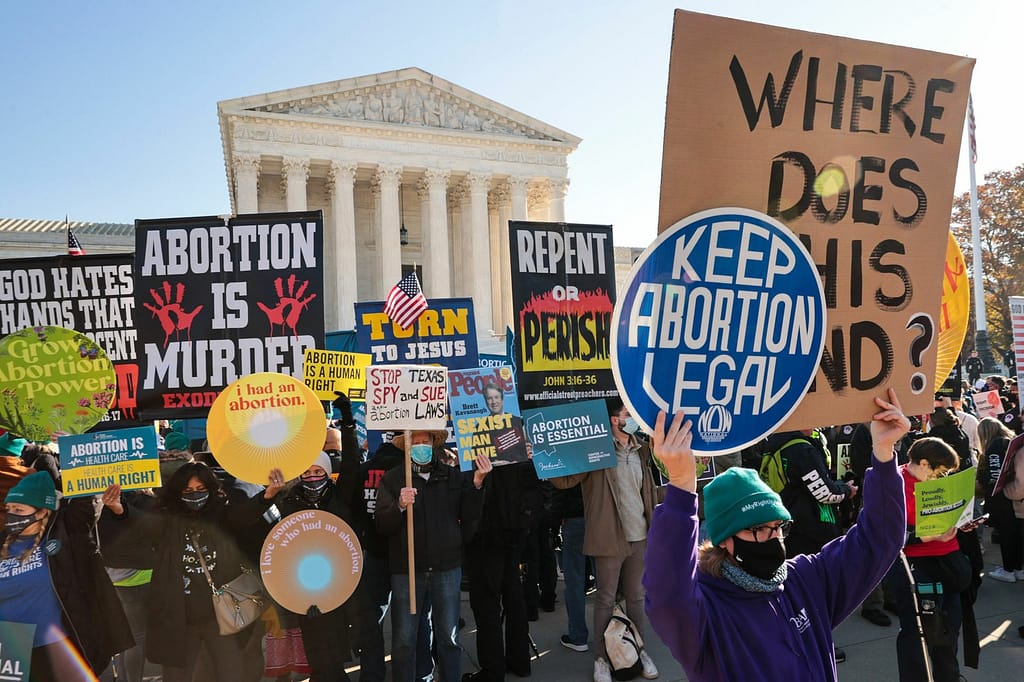In a pivotal decision, the U.S. Supreme Court has granted Idaho the authority to enforce its strict abortion ban, even in medical emergencies, intensifying the legal battleground surrounding reproductive rights. This ruling marks the second significant abortion dispute since the high court’s 2022 decision to overturn Roe v. Wade, empowering states to impose severe restrictions on abortion.
Table of Contents
U.S. Supreme Court’s Decision and Legal Landscape
The Supreme Court’s recent decision allows Idaho to enforce its stringent abortion ban, including during medical emergencies, while the legal wrangling continues. The justices have scheduled arguments for April and temporarily halted a lower court ruling that had previously blocked the Idaho law in cases of hospital emergencies. The legal skirmish originated from a lawsuit filed by the Biden administration.

The Idaho case stands as a crucial legal battleground, reflecting the court’s second major abortion dispute following the 2022 Roe v. Wade overturn, a decision that granted states greater latitude to regulate or prohibit abortion. Additionally, the court is set to consider a challenge to the Food and Drug Administration’s rules on mifepristone, a medication integral to the most common abortion method in the United States.
Emergency Abortion Access and Federal Law
The Biden administration, in its legal pursuit, argues that hospitals receiving Medicare funds must provide emergency care, including abortion, irrespective of state-level restrictions. This contention is based on the federal law known as the Emergency Medical Treatment and Labor Act (EMTALA). The administration issued guidance on EMTALA two weeks after the 2022 high court ruling, prompting a legal challenge against Idaho a month later.
District Judge B Lynn Winmill in Idaho sided with the Biden administration, aligning with the argument that EMTALA obliges healthcare providers to perform abortions in emergencies, regardless of state restrictions. However, a judge in Texas ruled differently in a separate case, underscoring the complexity of the legal landscape.
President Biden’s Response on Idaho’s Abortion Ban Stance
President Joe Biden expressed objection to the Supreme Court’s decision, emphasizing the administration’s commitment to defending a woman’s access to emergency care under federal law. In Idaho, performing or assisting in an abortion is a criminal offense, punishable by up to five years in prison.
Idaho contends that the Biden administration is misusing EMTALA, a law designed to prevent hospitals from rejecting patients, to impose a “federal abortion mandate” on states. Idaho Attorney General Raul Labrador argued that EMTALA makes no explicit mention of abortion.
Legal Battles and Ongoing Cases
Recent legal developments in Idaho reveal a multifaceted landscape. While a federal appeals court in New Orleans aligned with Idaho’s stance, rejecting the use of EMTALA to mandate hospitals in Texas to provide abortions, other legal battles unfold. The Supreme Court’s order removes the case from the appeals court, with a decision anticipated by early summer.
The ruling adds complexity to several ongoing legal battles in Idaho, including a lawsuit seeking clarity on the circumstances allowing patients to receive legal abortions. Simultaneously, a federal judge temporarily blocked Idaho’s “abortion trafficking” law in November, designed to prevent minors from obtaining abortions without parental consent in states where it is legal.
As the legal landscape evolves, the Idaho abortion ban case encapsulates the broader debate over reproductive rights, prompting critical discussions on state authority, federal law, and the intersection of healthcare and legal frameworks. The final Supreme Court decision is awaited with heightened anticipation, shaping the trajectory of abortion rights in the United States.